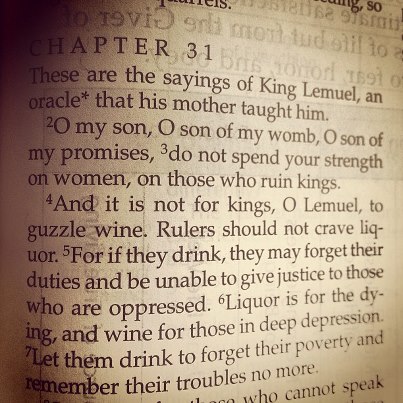
As most of you know I recently interviewed Richard Foster (my friends are wondering when I’m going to shut up about it). Besides his teachings meaning so much to me, one reason I admire him so much is because of ability to not only reach across denominations but also across the conservative/liberal spectrum. I still believe this to be true in general, but you can imagine my surprise when I was preparing for my interview with Foster and came across a few Youtube videos dedicated to “exposing” Foster for his mysticism.
I don’t know why I was surprised by ultra-fundamentalists having a problem with Foster, because of course they do. In a world where Westboro Baptist ‘church’ and other ridiculous groups exist, why wouldn’t there be a group of people who dedicate their time to ridiculing a man who is all about… communicating with God.
Then, that group (or a member of it) took a field trip to my blog.
In the post where I announced that I would be interviewing Foster and would be taking listener questions, a comment appeared…
“What does foster have to say about his quaker roots in mysticism? Clearly foster is not preaching the Jesus of the bible but another Jesus and another Gospel.
Can you have him comment on this?”
I chose not to include the link to the commenters blog post in which he outlines his indictment of Richard Foster the heretic.
Nevermind that this comment was posted more than a week after I had published the interview with Foster, leading me to believe that this individual is regularly searching the internet for mentions of Richard Foster so that he can inflict some cowboy justice on Foster and save all of us who are being led astray. Obviously this person made no effort to check and see if there was a completed interview, listen to said interview, and hear out what Foster has to say.
This all leads me to believe someone who has issue with Foster’s overall message either needs to…
A.) read Foster’s writings more closely. I tend to wonder if most people who dismiss Foster as a heretic have read his works at all. Anti-intellectualism tends to run ramped in these circles, and I would not be surprised if they believe they should not even read Foster lest they fall under his mystic spell.
or
B.) read scripture more closely.
I want to focus on the latter.
According to dictionary.com (hope there are no dictionary snobs out there)…
The definition of Mysticism is : a doctrine of an immediate spiritual intuition of truths believed to transcend ordinary understanding,or of a direct,
intimate union of the soul with God through contemplation or ecstasy.
How about we use Peter as a case study?
The books of Acts describes this curious happening:
” 9 About noon the next day, as they were on their journey and approaching the city, Peter went up on the roof to pray. 10 He became hungry and wanted something to eat; and while it was being prepared, he fell into a trance. 11 He saw the heaven opened and something like a large sheet coming down, being lowered to the ground by its four corners. 12 In it were all kinds of four-footed creatures and reptiles and birds of the air. 13 Then he heard a voice saying, “Get up, Peter; kill and eat.” 14 But Peter said, “By no means, Lord; for I have never eaten anything that is profane or unclean.” 15 The voice said to him again, a second time, “What God has made clean, you must not call profane.”16 This happened three times, and the thing was suddenly taken up to heaven.”
Let’s see, “…immediate spiritual intuition of truths believed to transcend ordinary understanding,” yes, I do believe this qualifies.
“…a direct, intimate union of the soul with God through contemplation or ecstasy” we have a winner!
You see, the proper argument to make, is not that Foster and his teachings are not of the Christian-mystic variety, but that Christianity as it is presented in the Bible is a mystic belief.
Meditation? Mentioned 19 times in the Bible (NRSV), 14 if you stick with the translation Paul and Jesus read, the King James Version, (sometimes I worry my sarcasm doesn’t convey well enough in the written word).
Fasting? Mentioned 26 times.
Solitude? How much time did Jesus spend alone in the desert?
Confession? “…confess your sins to one another…” James 5:16
Dreams, visions, virgin birth, God baby, water to wine, multiplying of bread & fish, healing by touch, RESURRECTION, ascension, sudden blindness on the road to Damascus, eschatological prophecy… This all sounds very mystic to me.
So before we go deciding who’s in and who’s out maybe we should at least make sure our facts are straight and understand that perhaps God is not nearly as narrow as we are.

Intervarsity Press has an exclusive for Seminary Dropout listeners. Go to ivpress.com/dropout to get 30% off The Church As Movement!



